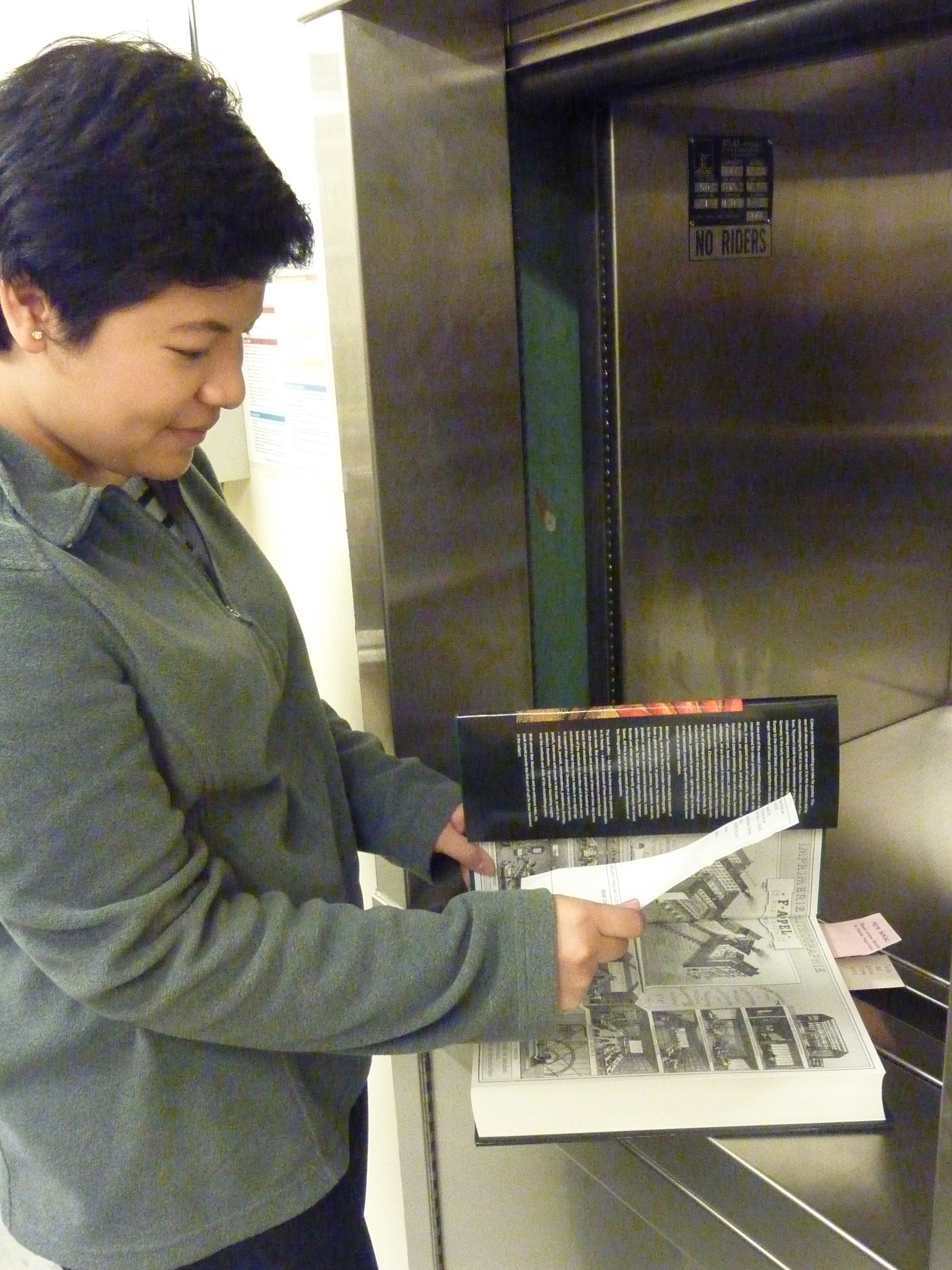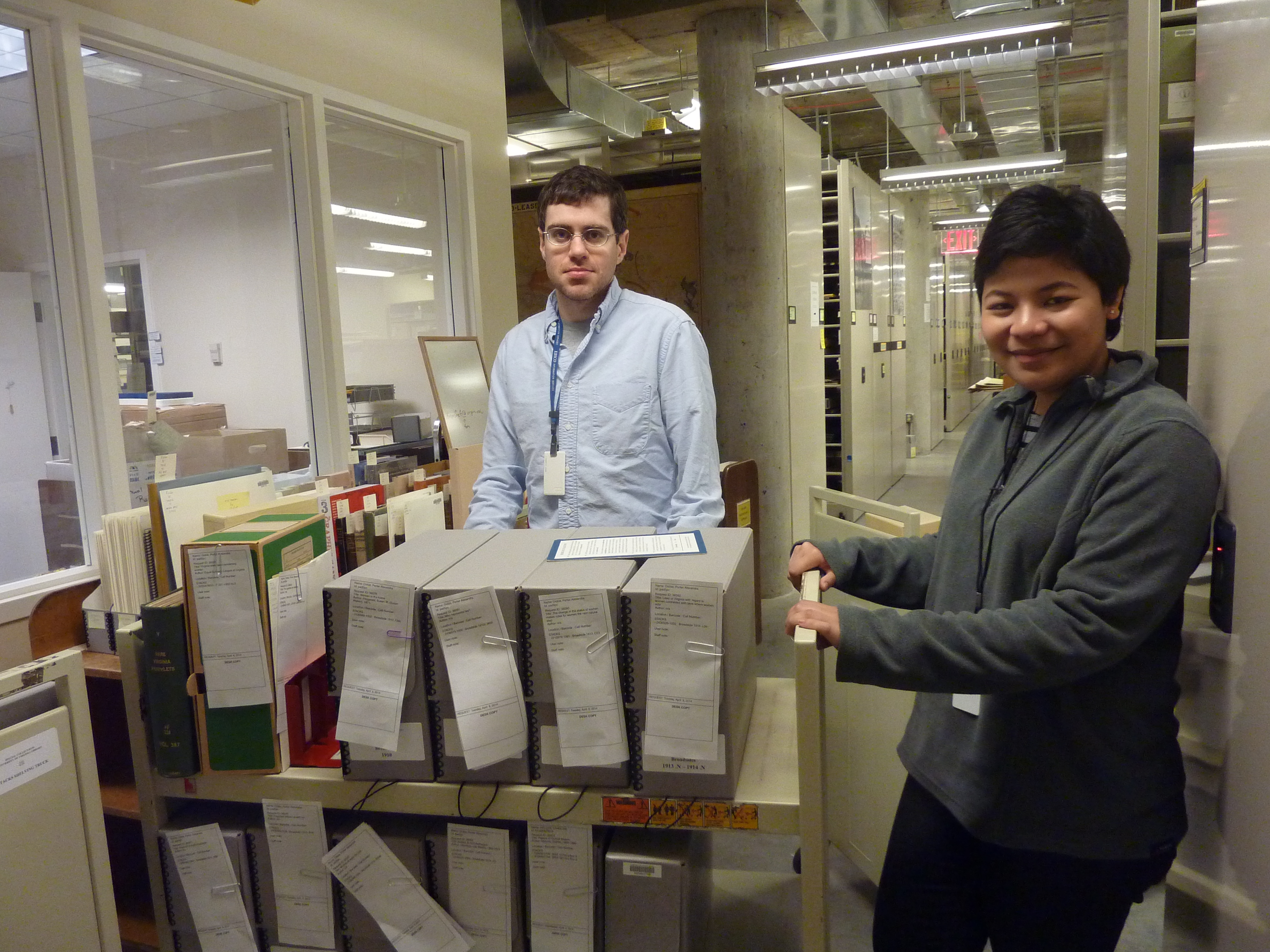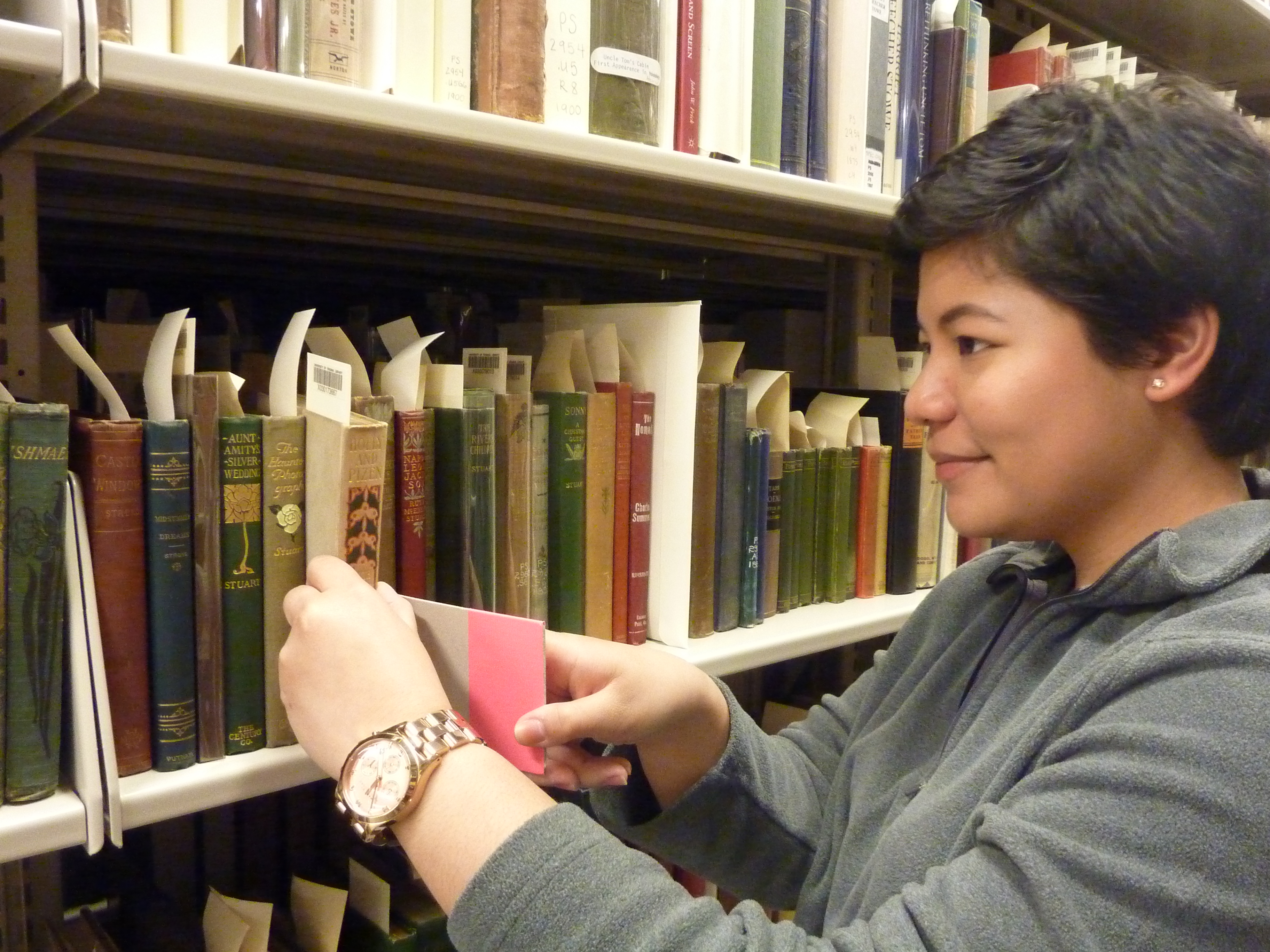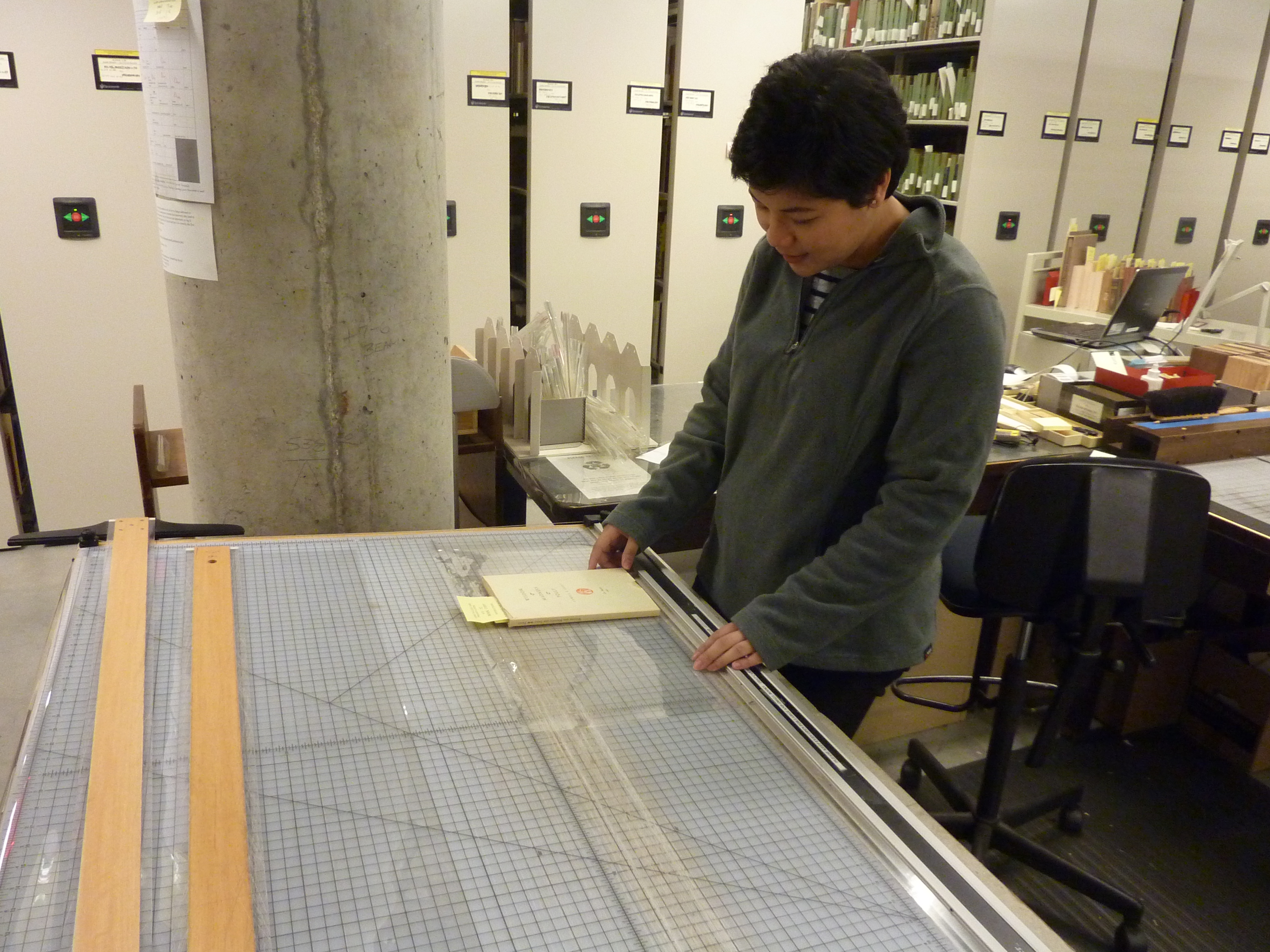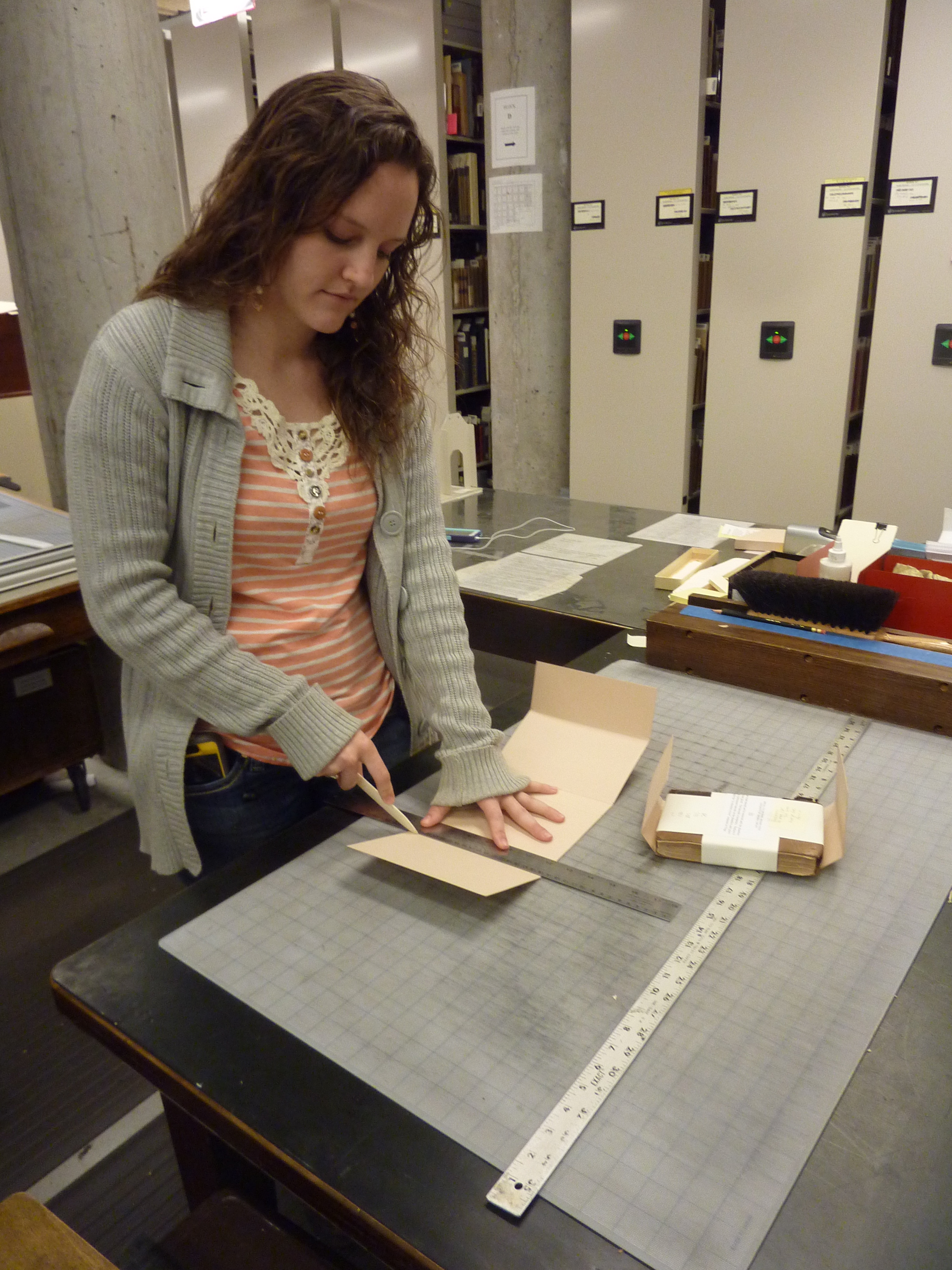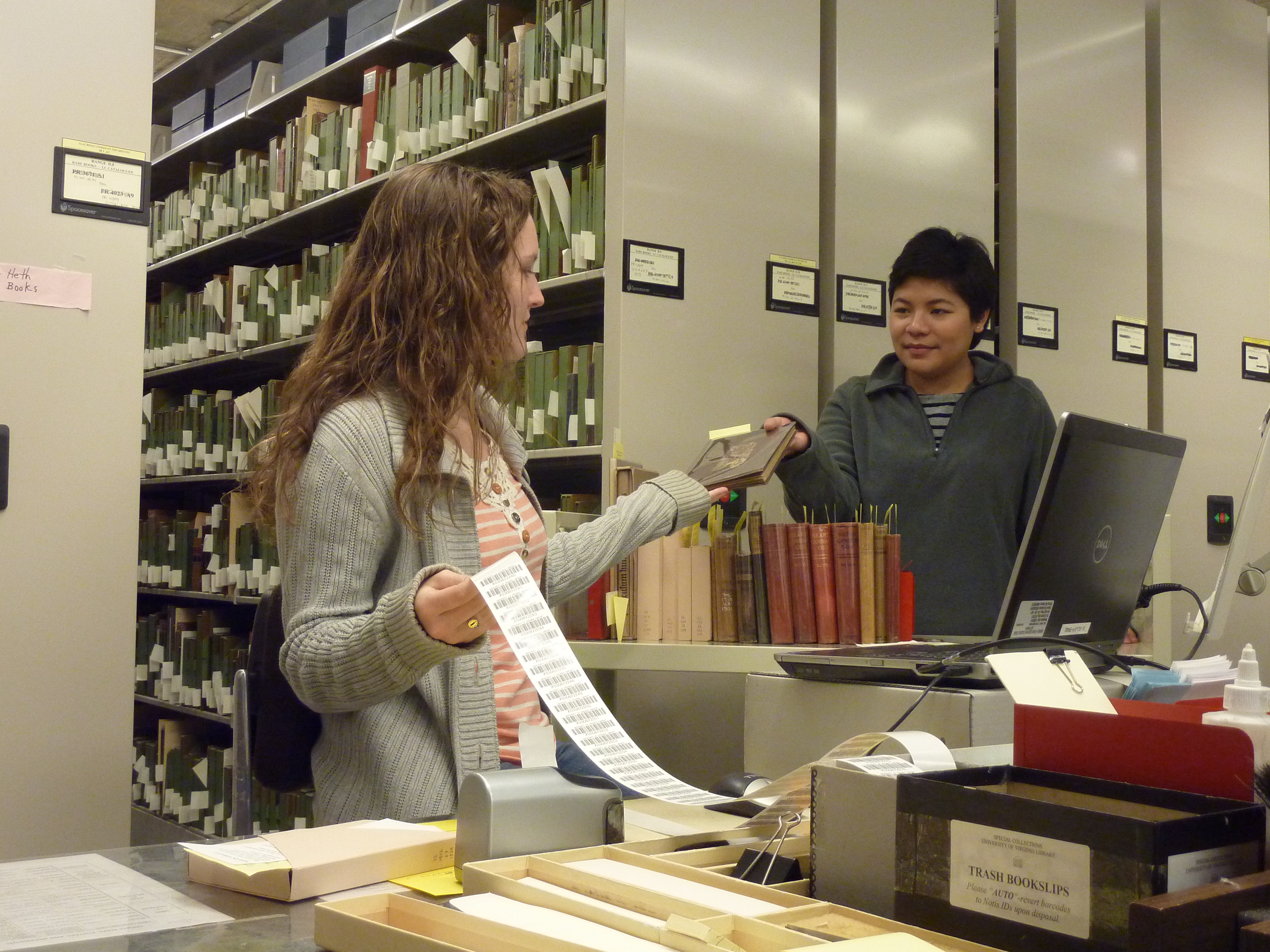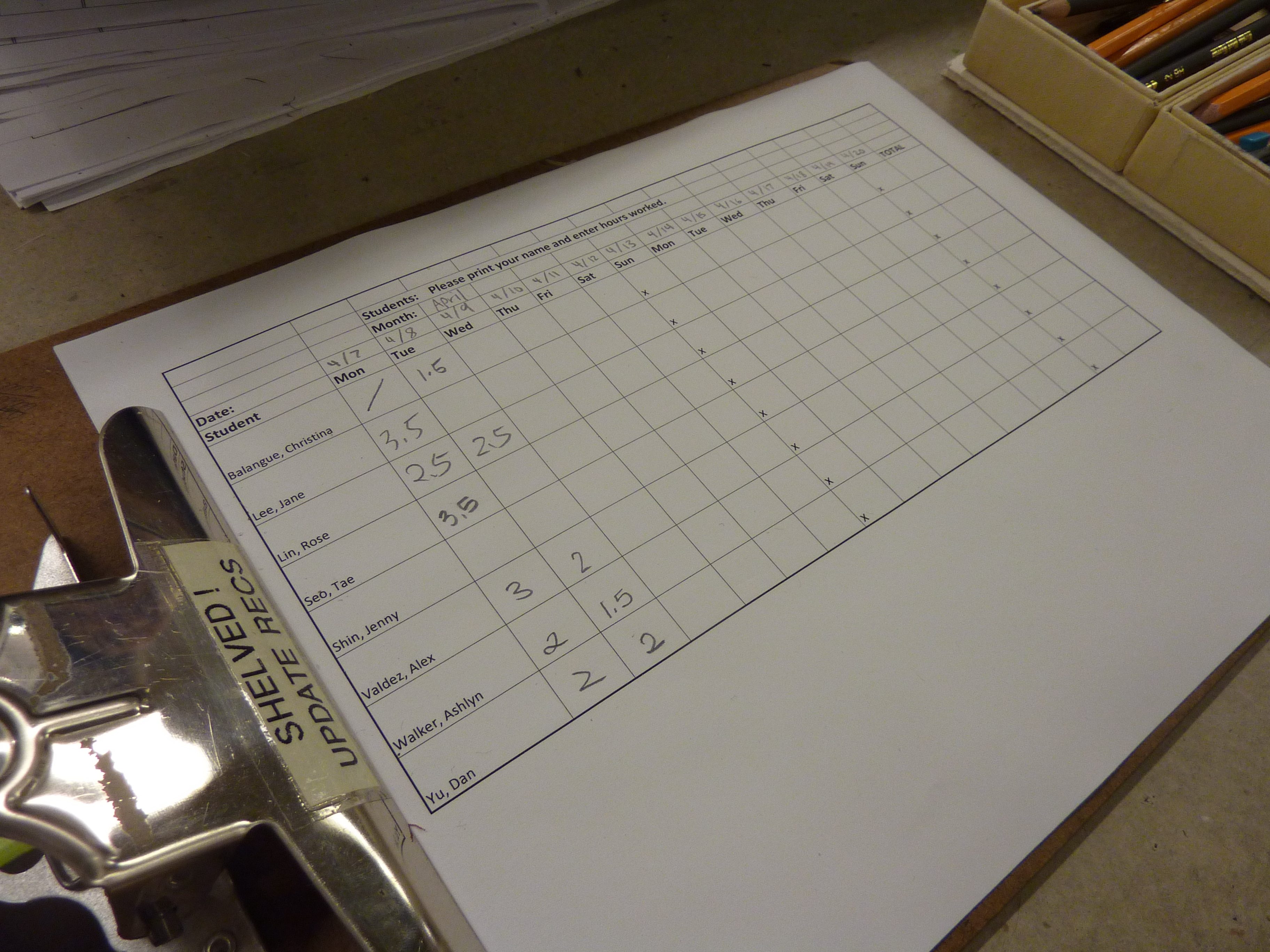This week, we are pleased to feature a guest post by two graduating students: Christina Balangue and Alex Valdez. Christina and Alex are long-time student assistants in Special Collections and have generously agreed to tell the blog a bit about their work down in the stacks. We will be so sad to see them go!
CHRISTINA: I’m a fourth year at U.Va.’s McIntire School of Commerce, concentrating in accounting. I started working at Special Collections the summer of my first year. After graduation, I will be joining PwC as a tax associate in the private company services group, preparing entity and partnership returns for clients in the greater Washington Metro area.
ALEX: I’ve been working at Special Collections since February 2012. I am also a fourth year but I am majoring in sociology and economics. My plans for after graduation remain fuzzy, but I’m hoping to get involved in social policy research and consulting.
CHRISTINA: The first thing that students realize about the stacks is it’s cold. Not plain cold—parka cold. So we often start our shifts with as much hustle and bustle as possible in order to warm up and acclimate. This means shelving new books, re-shelving pulled books, and pulling patron requests. Re-shelving books and pulling patron requests is one of the first things that students learn in the stacks. Every day, the ding of the dumbwaiter echoes in the stacks, signaling to students that items need to be retrieved from the shelves and sent to the reference desk. After the patrons find what they’re looking for (or not), the items get sent down to be re-shelved.
CHRISTINA: New shelving is a task most of us learned on our first day on the job. It’s simple enough: take a cart of newly acquired materials and place them on the shelf accompanied by a colored flag. This allows our supervisor, Brendan, to check and ensure the book is shelved accurately. Most students, including myself, dread new shelving. While I can’t pinpoint an exact reason for my dislike, the fact remains that every time I see a cart of new books, I turn around and dash to find another task, leaving the new books for the next unsuspecting stacks student to discover.
ALEX: If we’re not putting something away or wandering through the aisles trying to find something, then we’re probably in the preservation area. Here, we carry out tasks meant to protect Special Collection treasures from the many destructive elements threatening an item’s long-term survival (and yes, we are as dramatic about this job as I make it sound). The first task we learn is how to mylar. We create specialized plastic wraps for books with fragile paper dust jackets or fading front covers to prevent the paper from being torn or the covers from fading further.
ALEX: The second preservation duty we take on is the construction of phase boxes. These are acid-free cardboard boxes custom-designed to fit each individual book. Their job is to hold together books that are falling apart. In our experience, this task appears particularly daunting to the newbie student employee because of its many steps. You get the hang of it eventually, though, and it has actually become my favorite Special Collections job!
CHRISTINA: Special Collections also collects lots of serial publications from the New Yorker to the obscure Crime Times. We’re responsible for housing and shelving these materials. What’s my favorite part of shelving serials? Sneaking a peek at this week’s New Yorker Caption Contest winner.
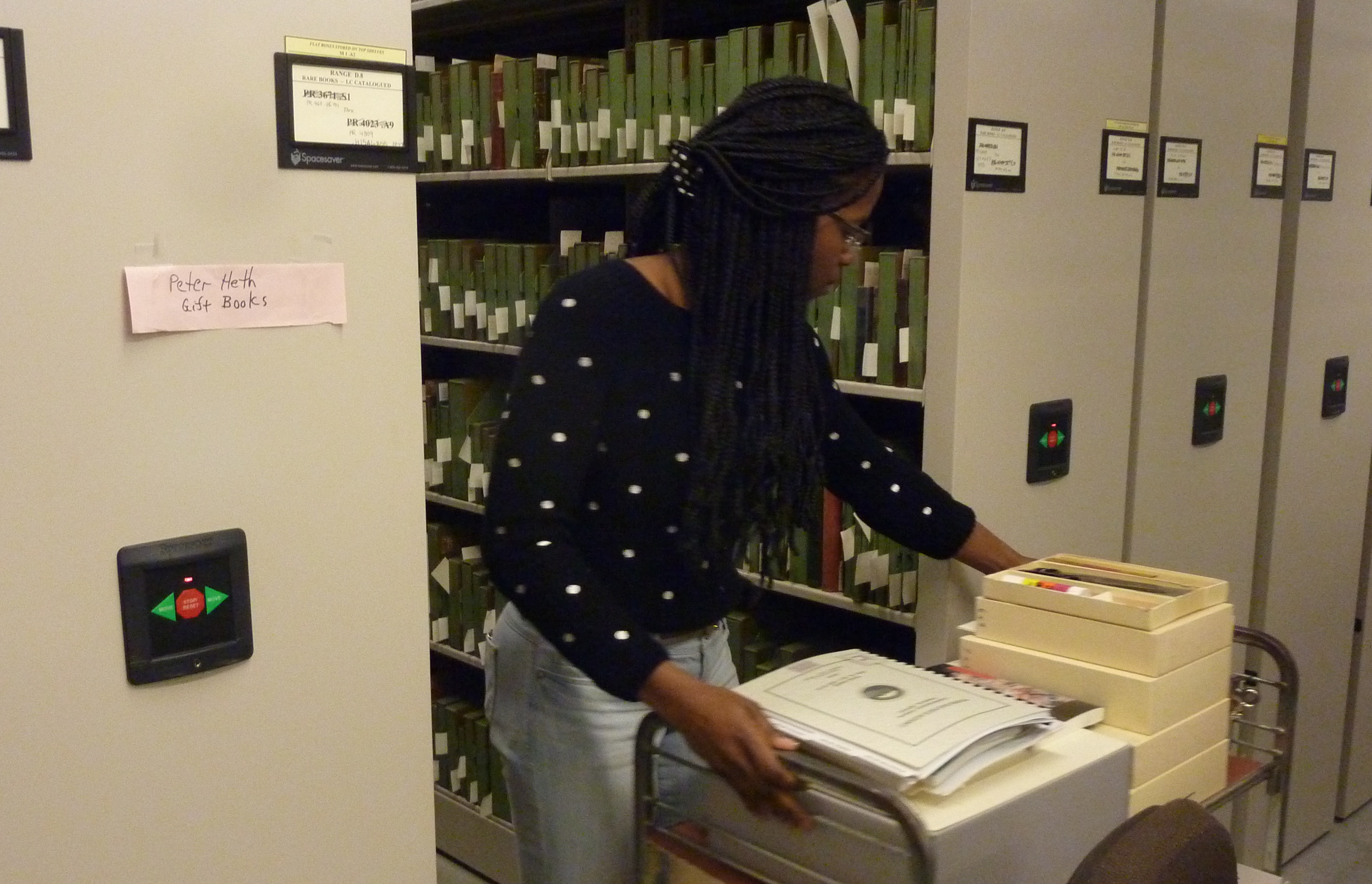
Student assistant Ashlyn Walker with the special serials truck, preparing to put new issues of serial publications into the stacks.
ALEX: Whenever we come into contact with an item that requires unusual housing or has a call number that can’t be found in Virgo, we reach out to our fellow student employees for help. We also often work together to barcode items and make sure the records we have on file are correct.
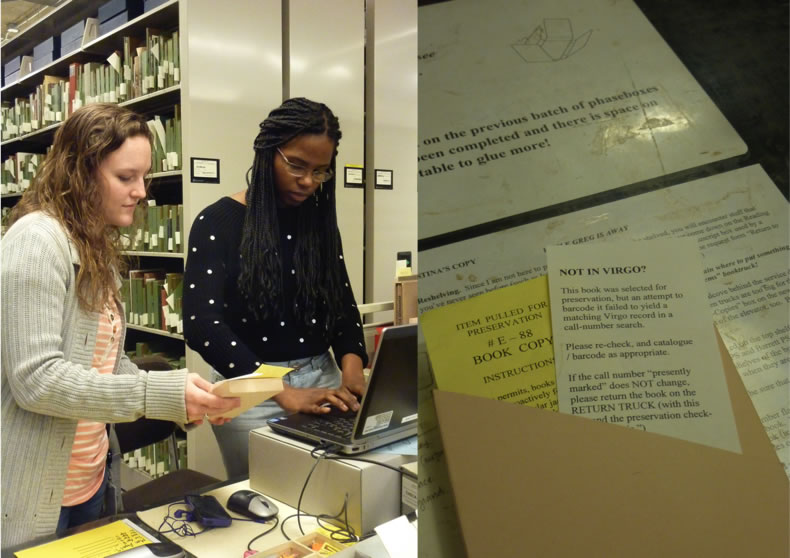
Alex and Ashlyn work together to determine why the call number of a phaseboxed book isn’t showing up in U.Va.’s online catalog, Virgo
CHRISTINA: There are many reasons I love working at Special Collections. Being surrounded by rare materials published hundreds of years ago, and protecting these items, are just the tip of the iceberg. What I will miss the most when I graduate are the people working here. The smiles, care, and trust that I have received from both student and library employees are incomparable and this is why coming to work is always such a pleasure. Special Collections, thank you for a wonderful four years.
ALEX: I enjoy working here because I love U.Va.’s collections. From the miniature books that are no bigger than my thumb to the elephant folios that weigh a ton, I’m fascinated by them all and honored to be able to help with their preservation. Like Christina said, the people we get to work with here are also amazing. Their passion for the materials inspires me and they’re actually all just fun to be around. It’ll be a difficult goodbye, but I am grateful to have been surrounded by such wonderful company over these last few years.
Thank you, Alex and Christina, for all your wonderful work over the years. We can’t say enough about how much we appreciate your dedication. And congratulations on your upcoming graduations! WAHOOWA!


